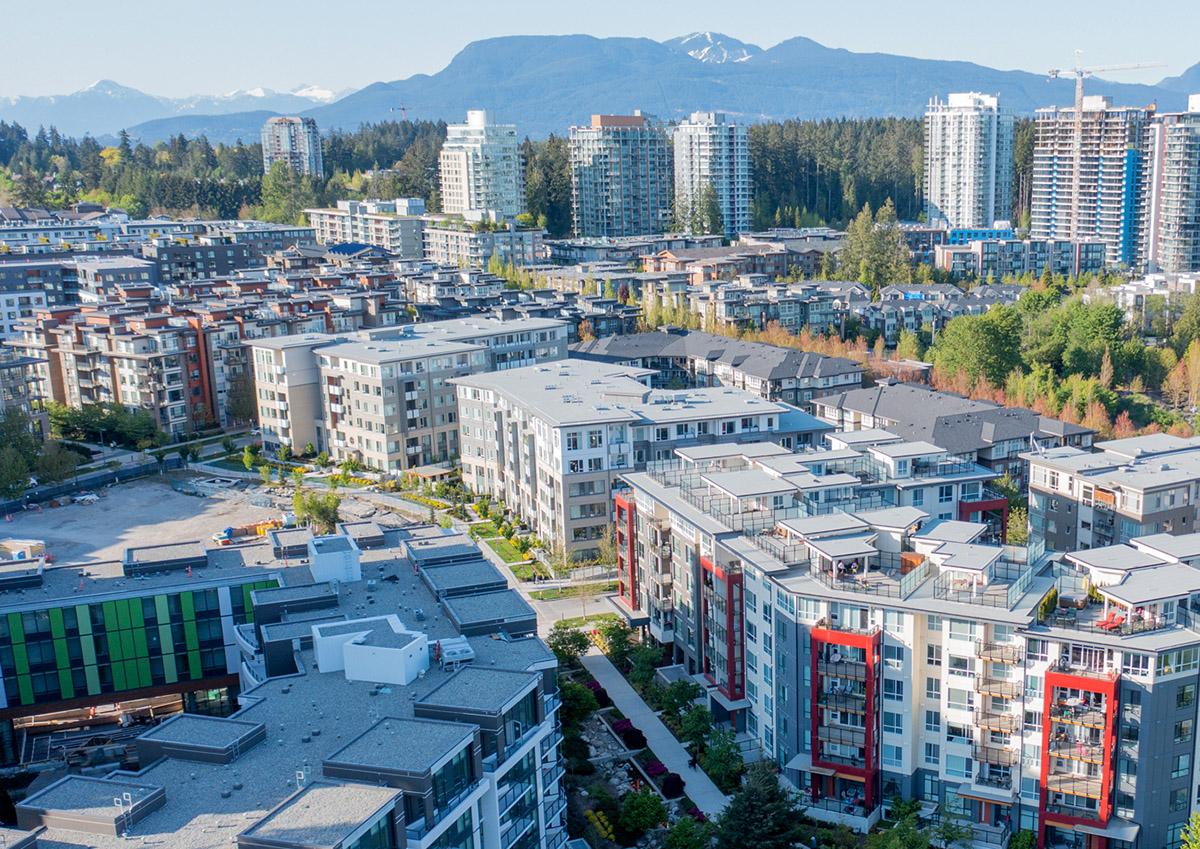What criteria did the provincial government apply when deciding to approve UBC’s new Land Use Plan (LUP) for its Vancouver campus? In an attempt to find out, I made a Freedom of Information request.
First, some background on the new LUP. The plan, which took effect in July 2024, regulates land use on the campus. Among many other things, it establishes density limits for each neighborhood, sets maximum building heights, and contains targets for neighbourhood open space, community space, retail, and childcare facilities. Detailed neighbourhood plans, such as the recently updated Wesbrook Place Neighbourhood Plan, are required to be consistent with the LUP.
The new LUP is the culmination of a process that started with the development of Campus Vision 2050, which provides a high-level, long-range plan for the Vancouver campus. The LUP implements aspects of Campus Vision 2050.
By law, the new LUP did not take effect until approved by the Minister of Municipal Affairs. UBC submitted the LUP to the Minister on December 13, 2023, together with the required supporting documentation, including details of the engagement process and the public hearing held on November 7, 2023. The Minister approved the LUP on July 22, 2024.
To obtain insight into the government’s process that resulted in approval of the LUP, I made a Freedom of Information (FOI) request in September 2024. The request asked for various documents, including briefing notes, correspondence, and meeting notes relating to the approval. Finally, in July of this year, I received a package of documents amounting to 945 pages. As is typical with FOI requests, sensitive information has been redacted (i.e., blanked out). Nonetheless, the documents provide considerable insight into the government’s approval process.
My main interest in making the FOI request was to find out whether the government considered the LUP details for the neighbourhoods such as density, building heights, and percentage of rental properties. In other words, did the government act as an independent arbiter of the planning aspects of the LUP for the neighbourhoods?
The short answer is that it did not, except for confirming that the LUP was consistent with recent housing legislation applicable to local governments. The notes of one meeting state that the Minister will not be commenting on the content of the plan.
One can question whether the lack of independent oversight of UBC’s LUP as it relates to the neighbourhoods is appropriate, particularly given that UBC has an incentive to maximize its revenue from residential development by providing for excessive density.
Many documents in the FOI package describe the review of UBC’s submission undertaken by staff of the Ministry of Municipal Affairs (MUNI). The purpose of this review was to ensure that UBC had complied with its legal obligations to engage with various stakeholders, to hold a public hearing, and to engage with the Musqueam First Nation. Staff also had to consider consistency of the LUP with Metro Vancouver’s Regional Growth Strategy.
It is apparent from the documents that MUNI staff did not consider whether UBC had responded adequately to the concerns that were expressed during the public hearing on the LUP. One document, headed “Bullets – Advice to Minister”, notes that, following the public hearing, Premier David Eby’s constituency office received over 100 letters expressing concerns and requesting that the LUP not be approved.
As a condition for approval, the Minister was required by law to consult with the Minister of Post-Secondary Education, who gave her support for the LUP. She noted, in particular, the formal commitments to achieving climate action targets and addressing affordability regarding housing for staff and students.
An aspect of the LUP that caused concern for Ministry of Transportation and Infrastructure (MOTI) staff is that it shows two future potential SkyTrain stations on campus. MOTI emphasized that the Minister of Municipal Affairs’ approval of the LUP was not to constitute committal by the province to the SkyTrain extension project. Accordingly, the Minister’s approval letter to UBC states that “separate planning and decision processes will lead to provincial decisions on matters such as extension of SkyTrain Millennium Line to UBC”.
Several documents mention UBC’s financial contribution to the SkyTrain extension. A letter to UBC from the Minister recognizes that timely adoption of the LUP is critical for exploring UBC’s financial contribution. A briefing note to Premier Eby states that UBC intends to move forward with additional developments as soon as the LUP is approved so that it can begin accumulating the resources to support its financial contribution to a station for the SkyTrain extension to UBC.
Another noteworthy point in the documents is a meeting summary that lists the UBC actions that are dependent on approval of the LUP. One action is redeveloping the police and fire stations on a site in a future neighbourhood.
A few days before the UBC Board of Governors approved the LUP for submission to the province, the Musqueam Indian Band sent a letter to the Board objecting to the LUP and stating that their Band Council had not approved it.
Apparently, this letter did not receive attention within the government until late January 2024, even though three ministers were copied. The Musqueam’s position became a huge issue in the government’s approval process. There were suggestions that the review of the LUP would have to be halted until the Musqueam concerns were accommodated. While this didn’t happen, those concerns resulted in a two-month delay in the Minister’s approval of the LUP.
Next month, The Campus Resident will publish an article on the topic of the LUP and First Nations, primarily the Musqueam.
BILL HOLMES IS A CAMPUS RESIDENT AND FORMER UNA DIRECTOR.
